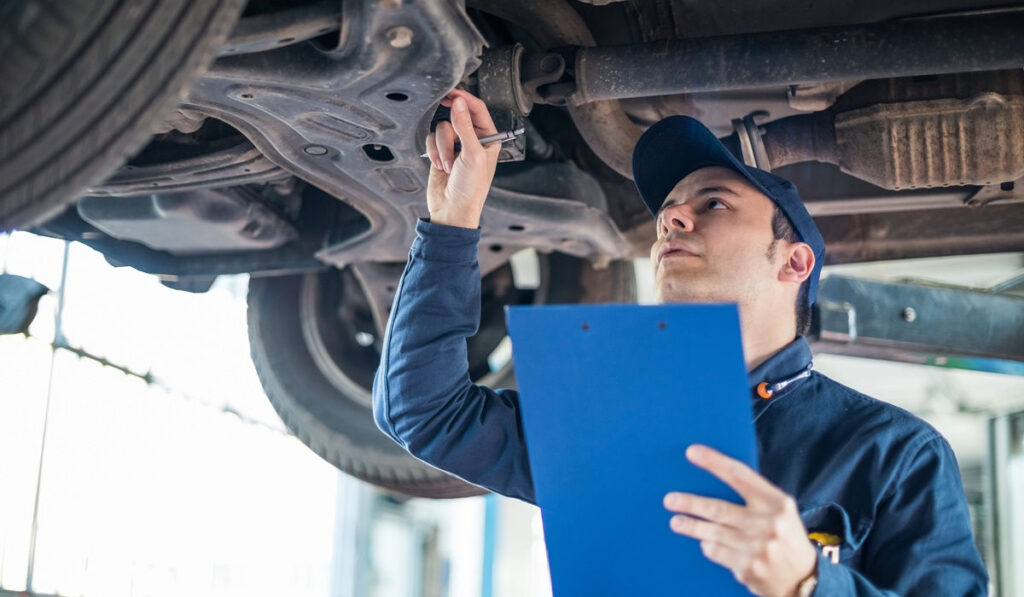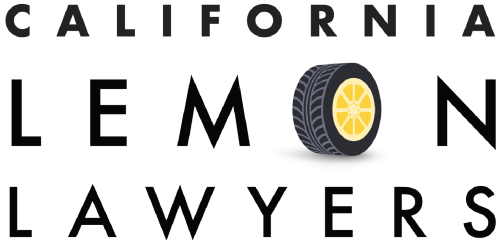As a consumer In California, you are entitled to seek legal remedy if your car turns out to be a lemon. CA Lemon Law applies to both new and used vehicles and you will need to present specific documents to make a claim. In this article, we will outline the 12 most important documents that you need to file a case. Keep in mind that every situation is unique, so if you have any questions about what needs to be provided as evidence in your specific case, it is best to speak with an attorney.
Note: If you need additional information about the claims process, here are the steps on how to file a Lemon Law claim in California.
Make sure to obtain and retain your copies of the following Lemon Law case documents:
Type 1 Documentation: Repair Order and Repair Invoices
To file a claim under California’s Lemon Law, you will need to provide documentation of all the problems you have experienced with your vehicle, as well as any attempts that have been made to fix them. This paper trail is important because it shows that the manufacturer or dealership has had a reasonable number of chances to repair your defective vehicle. Without this documentation, it may be difficult to prove your case.
Repair Orders
Each time you take your vehicle to the dealership for repairs, they will give you a repair order. This document lists the issues with your vehicle, as well as its current mileage. Disclose all the problems you have noticed with your car and make sure that these are included in your repair order. This way, you will have a record of all the defects with your vehicle and the manufacturer or dealership’s repair attempts.
Repair Invoices
When you get your car back from the dealership, you should be presented with a repair invoice or “pick up” copy of the repair order. The repair invoice is a document that describes all the repairs necessary, as well as all the problems you complained about. This document also includes everything the dealer did to try and repair the issue. The repair invoice is an important document that you will need if you decide to file a lemon law claim.
If the dealership has made a few attempts to diagnose the issue and simply says there is “no problem found” (NPF) or they “could not duplicate” (CND) the issue, do not be discouraged. These types of notes are created by the manufacturer to reduce the cost of warranty repairs, but this does not mean that the problem does not exist. If you believe there is something wrong with your vehicle, bring it back in for repair.

Type 2 Documentation: Vehicle Purchase Documents
Sale or Lease Contract
When you file a lemon law claim in California, you will need to provide your sale or lease contract. This document contains key information that will help support your claim. Make sure to keep a copy of this document safe and easily accessible. Please contact your dealership or financing company if you need to obtain a copy of your contract.
The following details are part of your sales or lease contract and will be used by the court to determine the amount of compensation you’re entitled to receive:
- The date of purchase
- The price you paid for the vehicle
- Aftermarket items included in the financing contract of the vehicle
- Discounts and Rebates
Under CA Lemon Law, you may be entitled to a full refund (also called Buyback) of the purchase price and financing costs, subject to certain allowable deductions.
Type 3 Documentation: Warranty Information
Warranty Booklet
When seeking legal recourse for a lemon, it is important to have all pertinent documentation in order. In the state of California, this includes the warranty information booklet provided by the manufacturer at the time of purchase. This is because, without a written warranty, there is no valid basis for a Lemon Law claim.
Each warranty varies in terms of what is covered and how long the validity period is, so this information is key to demonstrating that the repairs required were covered under the warranty when the issue(s) arose. Additionally, the warranty booklet helps prove that the repairs that your vehicle needed were included in what was promised at the time of sale. Having this documentation readily available will help streamline the legal process.
In general, the lemon law only covers defects that are covered by your warranty. If your defect is not covered by your warranty, then it is not the responsibility of the vehicle’s manufacturer. For example, if your defect is related to an aftermarket auto part, such as an exhaust system or stereo, it is likely not covered by your warranty and therefore would not be covered by the lemon law.
Supplementary Documentation
The four documents mentioned above serve as the foundation of your Lemon Law claim and your case will be stronger if you have all of these essential pieces in place. However, there are supplementary or additional pieces of evidence your attorney may require from you that could impact how the case turns out. These may include:
- Vehicle registration
- Maintenance history (you may get a copy of this from the dealership or authorized repair facility)
- The vehicle’s accident history. You may obtain a copy of this from the National Highway Traffic Safety Administration (NHTSA) or seek assistance from any of the government agencies listed here.
- Any correspondence with the manufacturer (letters and emails)
- A timeline record of all repairs done on your vehicle (including dates, issues reported, name and location of the dealership, number of days the vehicle was in the shop, instances or periods when the vehicle was unusable or unsafe to use, etc.)
- Out-of-pocket expenses incurred due to problems with your vehicle (towing expenses, car rental charges, Uber/Lyft costs, etc.)
- Your notes that were taken during repair visits (including visit dates, locations, the name of repair techs you spoke with, the gist of your conversation, the information they volunteered or withheld, etc.)
When you’re in the middle of a lemon law case, it’s important to keep all your documents organized. If you’re submitting original documents to your attorney, you’ll also want copies for yourself in case you need these for reference.
To make sure this documentation process goes smoothly with minimal hassle on your part, try to keep everything accessible in one place by gathering all case-related documents in a single folder or envelope. You can also choose to retain digital copies of your documents that can be easily attached to an email or reproduced as hard copies on any printer. Having these documents readily available will speed up the process and help ensure that your claim is successful.
Conclusion
Providing all of these documents will give you the best chance at success in your lemon law claim. If you have any questions or need assistance gathering these documents, an experienced lemon law attorney can help.
Consult with a Lemon Law Attorney
If you suspect your car to be a lemon, it’s important to speak with an experienced California Lemon Law attorney who can help evaluate your case, thoroughly inform you about the law as it applies to your particular situation, and guide you through the claim process. Call us today at (323) 747-7245 for a free consultation or get in touch by filling out the form above.


